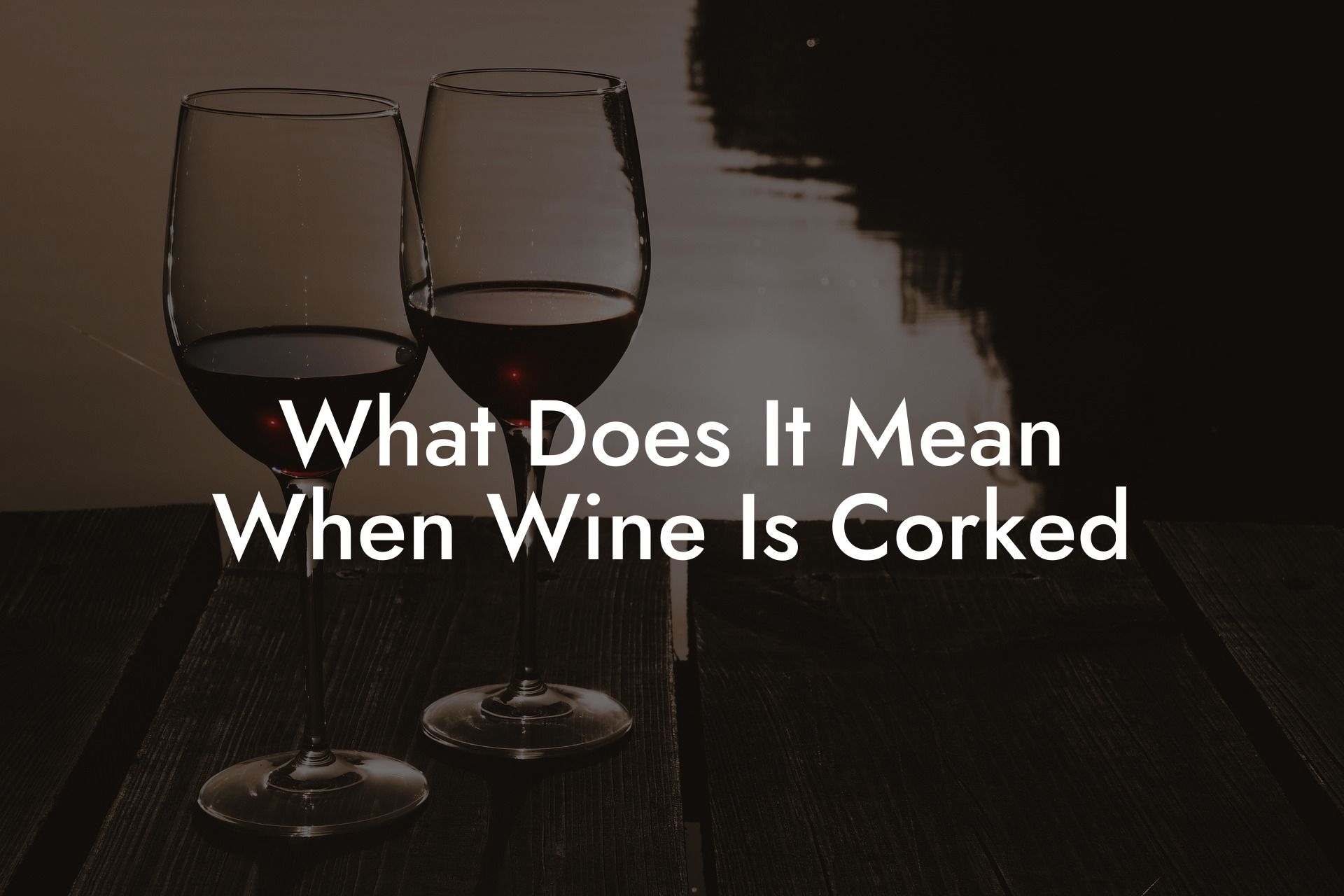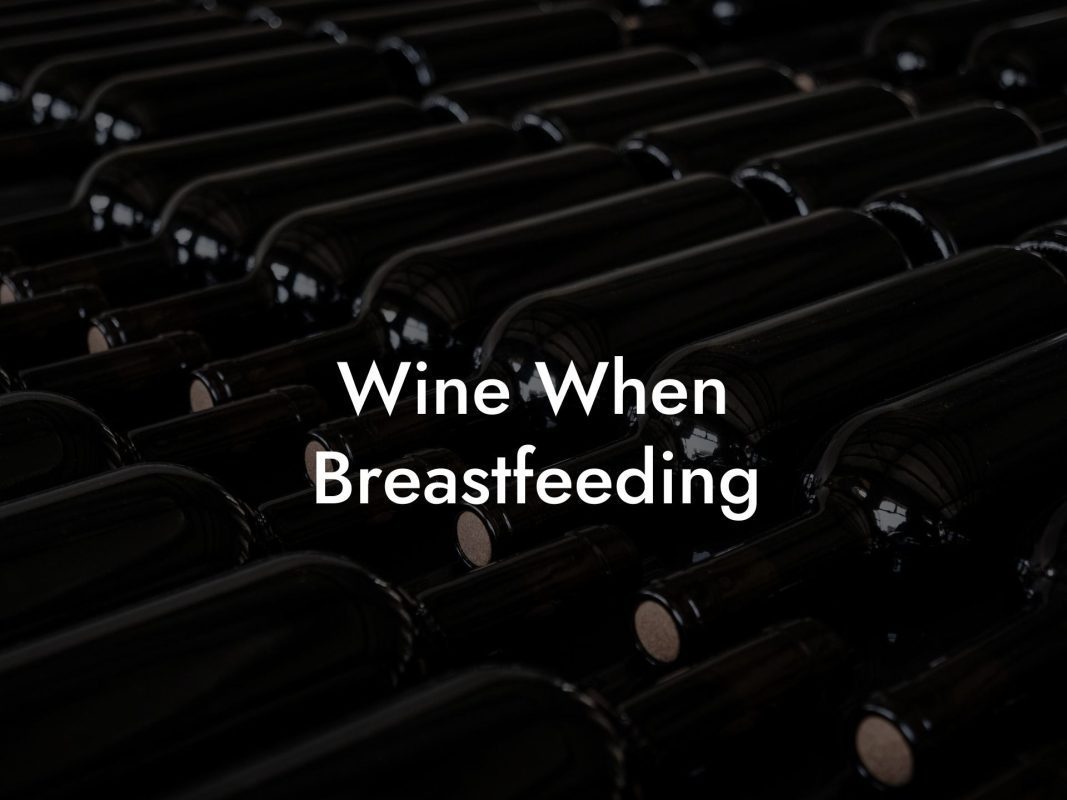Imagine this: you've been waiting all week for a relaxing evening at home, sipping on a glass of your favorite red wine. You finally pop open the bottle and take a whiff, only to be met with a musty, damp smell. Disappointed, you realize that the wine is corked. But what exactly does it mean when wine is corked? This blog post will dive into the world of corked wine, unpacking what it is, why it happens, and most importantly, how to avoid it.
What Does It Mean When Wine Is Corked Table of Contents
What is Corked Wine?
Corked wine is a term used to describe a bottle of wine that has been tainted with a compound called 2,4,6-trichloroanisole (TCA). TCA is a chemical byproduct of naturally occurring fungi, typically found in cork or sometimes wood used in wineries. When TCA comes into contact with the wine, it creates an unpleasant smell and taste, ruining the wine’s original flavors and aromas.
Why Does Wine Get Corked?
As mentioned, the main culprit behind corked wine is TCA. TCA forms when chlorophenols, which are chemicals used to treat wood and other materials, come into contact with fungi present in cork or wood. When a cork containing TCA is used to seal a bottle of wine, the TCA can leach into the wine, tainting it with the infamous “corked” smell and taste.
Do You Want to Win a Free Bottle of Wine?
Don't miss out on the opportunity to win a free bottle of wine every week.
Enter our weekly prize draw today!
It’s important to note that the amount of TCA in a corked wine can vary, meaning that some corked wines will have a more pronounced off-flavor than others. Additionally, not all guests will be able to detect the TCA in the wine. Some experts estimate that up to 5% of wine bottles with natural cork closures are affected by TCA.
How to Identify Corked Wine
While there's no guarantee that you can avoid buying a corked bottle of wine, familiarizing yourself with the signs can help you identify it quickly:
- Smell: The most common and reliable indicator of corked wine is a damp, musty smell reminiscent of wet cardboard or a moldy basement. This aroma overpowers the normal smell of the wine.
- Taste: Corked wine often suffers from a diminished or muddled flavor profile. The wine can taste dull or flat, with a lack of fruitiness and complexity.
- Texture: A corked wine may also have an unusual texture in the mouth, feeling thin or watery, and lacking the usual finish of a good bottle of wine.
What to Do If You Have Corked Wine
If you suspect you have a corked bottle of wine, don't despair. Here's what you can do:
- Return the bottle: If you purchased the wine from a store or at a restaurant, most places will accept returns or exchanges for corked wine, even if the bottle has been opened. Notify the staff or management about the issue; they can evaluate the wine and offer you an alternative bottle.
- Do not consume: While corked wine is not harmful to your health, it's not enjoyable either. There's no point in ruining your palate with unpleasant flavors and aromas. Save the wine for cooking, where the unpleasant flavors can be overwhelmed by other ingredients.
- Prevention: To minimize the chances of encountering corked wine, look for bottles with alternative sealing methods, such as screw caps or synthetic corks. These closures have a much lower risk of TCA contamination.
What Does It Mean When Wine Is Corked Example:
Imagine hosting a dinner party and serving up a beautiful, aged bottle of Bordeaux that you've been saving for a special occasion. As you pour the first glass for your guest, you notice the unmistakable smell of musty cardboard. Unfortunately, your prized bottle is corked. Instead of panicking, you inform your guests about the issue, explaining that corked wine is not harmful but that it's not enjoyable to drink. You quickly replace the corked bottle with an alternative, saving the rest of the evening and turning the incident into an educational moment for all.
No one wants to experience the disappointment of a corked bottle of wine, but by understanding what causes it and how to identify it, you can navigate the world of wine with confidence. Now that you have the knowledge, you're ready to be the go-to wine expert among your friends. Spread the word by sharing this article with fellow wine enthusiasts and continue exploring Black Wine Club for more informative and engaging content on all things wine. Cheers!
Do You Want to Win a Free Bottle of Wine?
Don't miss out on the opportunity to win a free bottle of wine every week.
Enter our weekly prize draw today!












